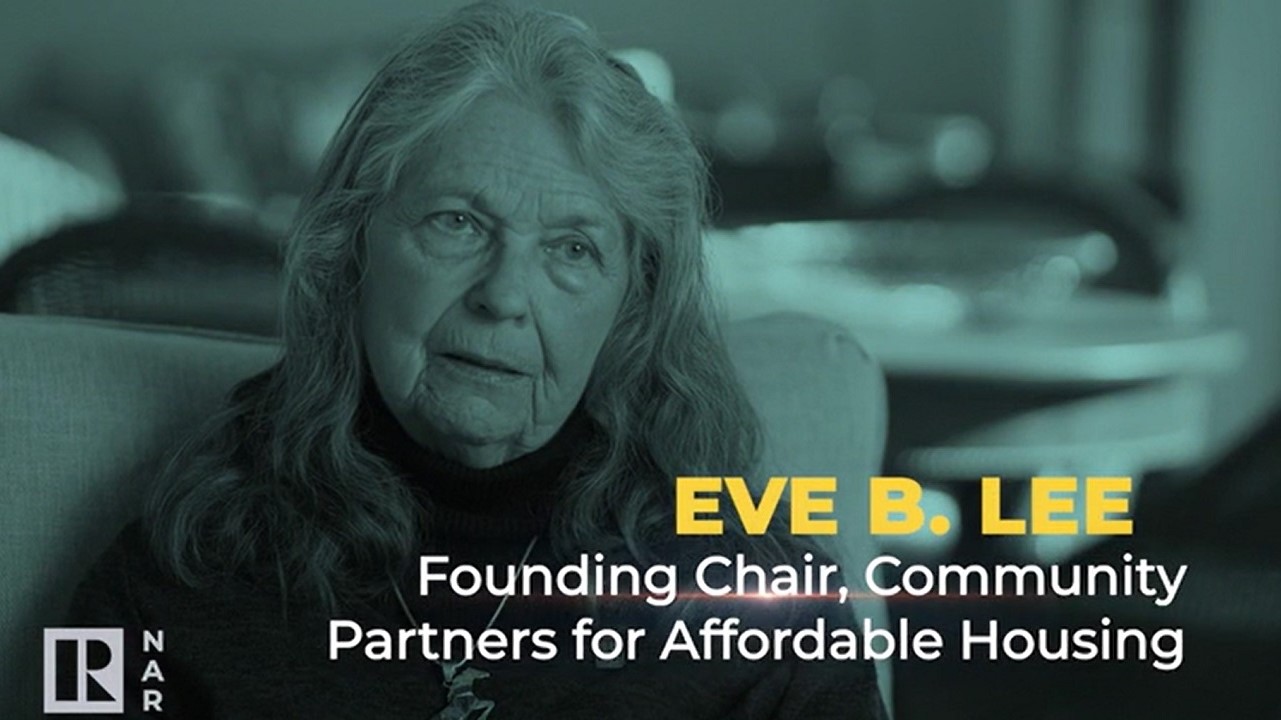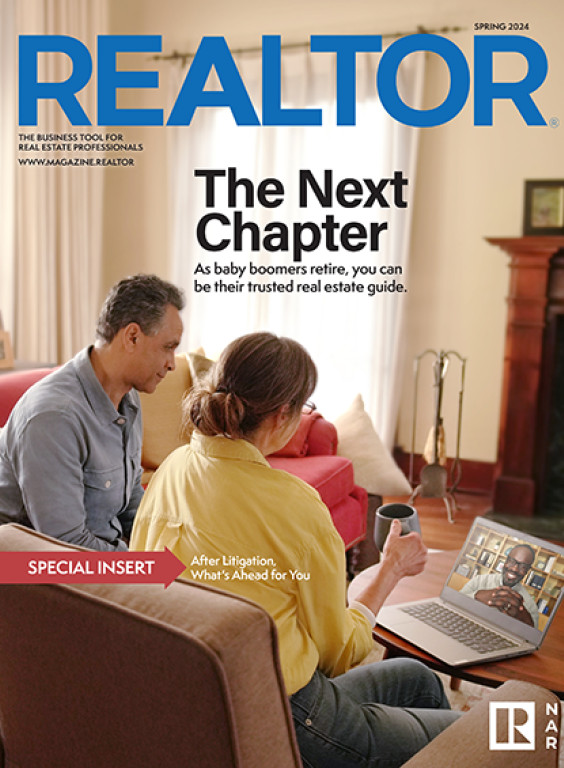For more than 60 years, Eve B. Lee, AHWD, has served as a leader in expanding housing opportunities in Lake County, Ill. As a testament to her work, the village of Libertyville, Ill., recently approved a $20 million plan from the Community Partners for Affordable Housing (CPAH) for the development of 34 affordable apartment units for seniors. The development will be called Eve B. Lee Place.
Lee knew from a young age that people deserve equal treatment, regardless of their economic status, age, color, race or ethnicity.
“For reasons that I don’t quite understand, fair play was doctrine for my mom,” Lee says, maybe because she understood deeply what it was to struggle. Lee’s parents battled alcoholism and financial problems.
“They divorced when I was 12. After that, I was raised by my maternal grandparents” in Mundelein, Ill., 40 miles north of downtown Chicago. Lee’s grandfather, who had once been mayor of Mundelein, died when she was 14. “That background taught me how easy it is to lose everything because of circumstances beyond your control,” she says.
Although she couldn’t afford it, Lee had dreams of furthering her education. “I wanted badly to go to Middlebury College. It was my most cherished goal. We didn’t have the money, but I couldn’t let it go.”
In high school she studied Latin, served as editor of the school’s newspaper and was a National Merit Scholar. She applied for every scholarship she could find, but it wasn’t enough to cover the cost of attending the elite Vermont college. Lee’s mother reached out to a member of the Heinz family, which as a major benefactor helped to connect her with financial aid for tuition.
Lee’s moral compass was put to the test in 1964 when her sorority reinstituted a blackball rule that effectively allowed for the exclusion of Black women. Lee, at the time president of the Middlebury College chapter, chose to leave the sorority. Later, facing her own personal and financial struggles, she left Middlebury without graduating. She went home, married a childhood friend and soon had her real estate license.
Fair Housing Gains Ground
It was a time when the Civil Rights Movement was gaining ground in Chicago. In 1966, Martin Luther King Jr. took up temporary residence in the city to fight unfair housing practices through the Chicago Freedom Movement and a fair housing organization he helped to found, the Leadership Council for Metropolitan Open Communities. When an LCMOC employee named Bob Cizek came to her brokerage to talk about how to integrate Lake County, she volunteered to advise him.
In 1968, Lee read a study showing that an estimated 15,000 affordable housing units were needed in Lake County. “So I got myself appointed to the regional planning commission.”
Thirty years later, in 1995, she became the first real estate agent appointed to the LCMOC board of directors. She made it clear she would serve only if the organization would help implement training and agree to the use of professional standards hearings, rather than lawsuits, for pattern-or-practice violations. Lee also negotiated a meeting between National Association of REALTORS® General Counsel Laurie Janik and LCMOC Lead Attorney Bill Caruso that resulted in a historic détente between the two organizations.
Filling the Gap
In 1968, Lee read a study done by Northshore Gas Co. that an estimated 15,000 housing units were needed to serve the population in Lake County. Lee went to the chairman of the county board to find out what efforts were being made. “They were doing nothing at the time, so I got myself appointed to the regional planning commission,” she says. She later chaired the commission and ensured that affordable housing was included in the county’s Framework Plan. That work spurred her appointment as a founding member of the Lake County Affordable Housing Commission, which studies housing needs and finds funding opportunities.
When her old friend Bob Cizek became executive director at the Lake County Housing Authority, he reached out to Lee. The agency had received several million dollars in federal funding for the planning and building of affordable housing. “At the time, housing authorities were not able to borrow money, so he came to me to help figure out how we could make the best use of the money,” she says. She co-founded the Lake County Residential Development Corp., a nonprofit that worked with developers, builders and investors to create 1,300 affordable housing units across Lake County from 1978 to 2019.
In 2017, Lee initiated a strategic planning process that resulted in the merger of the three largest affordable housing nonprofits in Lake County. CPAH is the merged organization, and it has changed the affordable housing landscape by creating a continuum of housing services, including HUD-certified housing counseling, down payment assistance and accessibility improvements. Lee served as the new entity’s first board chair.
Arc of the Moral Universe
In the 1980s, when she served on equal opportunity committees for both the Illinois REALTORS® and NAR, Lee called for mandatory state and national fair housing training for real estate professionals. In 2023, her vision was realized when NAR’s board of directors passed a fair housing training requirement for members; it goes into effect in 2025.
At a vibrant 80 years old, Lee says her work is not yet done. “Now my mission is to make affordable housing more accessible,” she says. “You cannot have fair housing without affordable housing.”







